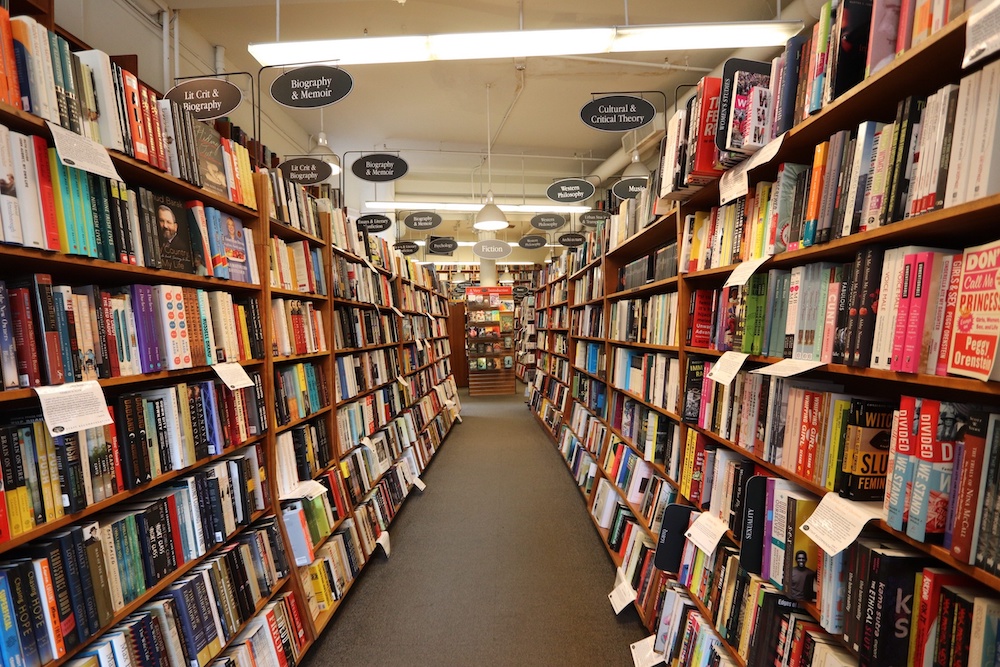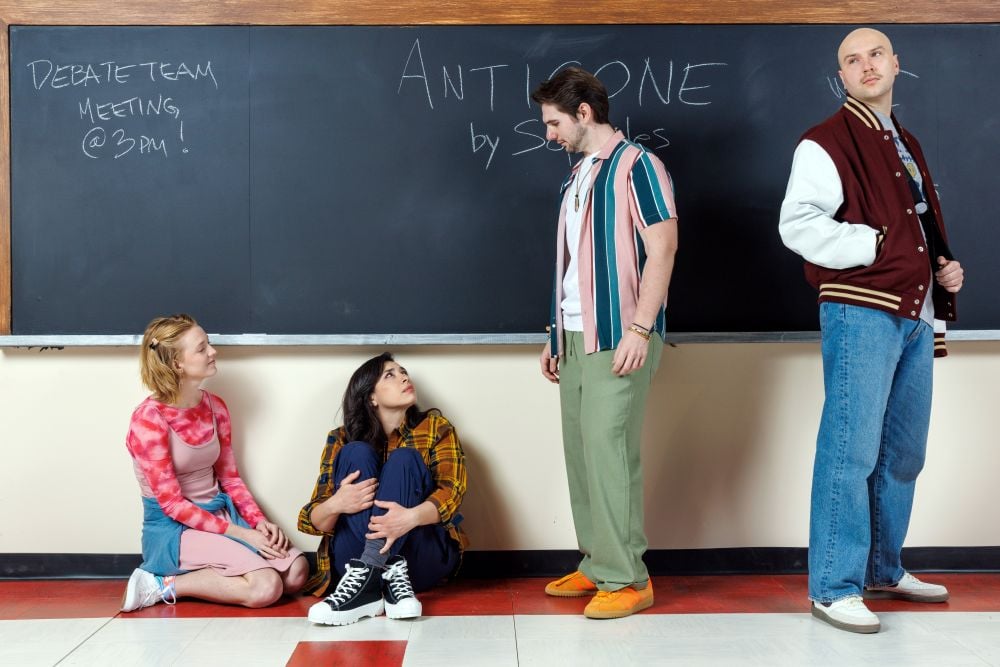Pittsburgh Review of Books Hits the Shelves
The new free literary site is a venture by Carnegie Mellon University with several local partners.
Books and the literary arts are clearly having a moment in Pittsburgh.
On the heels of a recent resurgence of independent bookstores opening around town, the Greater Pittsburgh Festival of Books hosted its first annual event in the spring of 2022, drawing hundreds of people to a day of author talks, poetry readings, book sales and more.
Then in the fall of 2024, the renowned International Poetry Forum returned after a hiatus of 14 years.
Now say hello to the Pittsburgh Review of Books, a new online venture published by Carnegie Mellon University’s English Department and headed by CMU professor Ed Simon.
The website debuted on Sept. 3 and will showcase author interviews, book reviews, essays and excerpts of coming books by local, national and international authors. It also will promote local literary events. Access to the site, supported by a 10-member staff made up of Simon and CMU graduate and undergraduate students, is free. It will be updated with at least two new stories a week.
“I think we’re like America’s great undiscovered literary capital in some ways,” Simon says of Pittsburgh.
“It was almost like an issue of civic pride for me because I feel like it was a gap in our literary world that is such a rich and incredible community,” he says about creating the site. “We have such a tremendous amount of talent in the city and a lot of incredible publications, but there’s not anything that’s quite like this.”
Simon, who also is editor of Rust Belt magazine, says creating the Pittsburgh Review of Books (known as PRoB) has been a longtime dream of his. He said he really wanted a Pittsburgh-based publication similar to the Los Angeles Review of Books or other such collections. While The New York Review of Books is “a little bit stodgy and tweedy” and the Los Angeles Review of Books more “button-down and laid back,” he says, Pittsburgh’s will be “a little bit grittier.”

ED SIMON, EDITOR OF PITTSBURGH REVIEW OF BOOKS AND A CARNEGIE MELLON UNIVERSITY PROFESSOR | COURTESY ED SIMON
The site premiered with an interview with Jill Lepore, who on Sept. 15 kicks off the first of 10 author talks for the Pittsburgh Arts & Lectures 2025-26 series.The Harvard University professor also is a staff writer for The New Yorker. Her latest book is “We the People: A History of the U.S. Constitution.”
The Arts & Lecture series is a media partner with PRoB, which under the partnership will conduct interviews with its visiting speakers. Additional partners include other CMU departments and its library, City of Asylum, International Poetry Forum, White Whale Bookstore, Autumn House Press and more.
The independent website, Littsburgh, also has also been covering the Pittsburgh literary scene since 2015. It was founded by three local publishing professionals.
“We’re big fans of Ed Simon and the work he’s doing with the Pittsburgh Review of Books,” says Littsburgh co-founder Nick Courage. ”Since Littsburgh launched as a passion project in 2015, we’ve been celebrating Pittsburgh as one of the world’s most literary cities — and every literary city needs a book review. Especially now, in today’s media landscape, where book coverage is harder and harder to find. As authors and literary agents and book publicists, we couldn’t be happier to welcome the Pittsburgh Review of Books to literary Pittsburgh!”
Simon says there is another reason PRoB is needed.
“There’s been such a tremendous attack on the humanities in higher ed, kind of across the board,” Simon says. “Some of it is because of the politics and cultural context of right now. But a lot of institutions are scaling back their offerings; they’re closing down departments.” The University of Chicago, in particular, has recently shuttered what he called “world-class departments,” he notes.
He said the opposite is taking place at CMU, where he believes the school has been elevating the stature of the humanities. Creating PRoB fits in with his role as a CMU public humanities lecturer.
He says Pittsburgh has a particular interest in how the humanities intersects with the questions of science, technology, industry, labor and the environment. “That’s not only what we will publish, but that’s a lot of what I really want us to focus on,” he says.
“I really want this to be an opportunity for this site to offer humanistic analysis and criticism of these kinds of STEM subjects that oftentimes in the wider world don’t get that kind of attention.”













